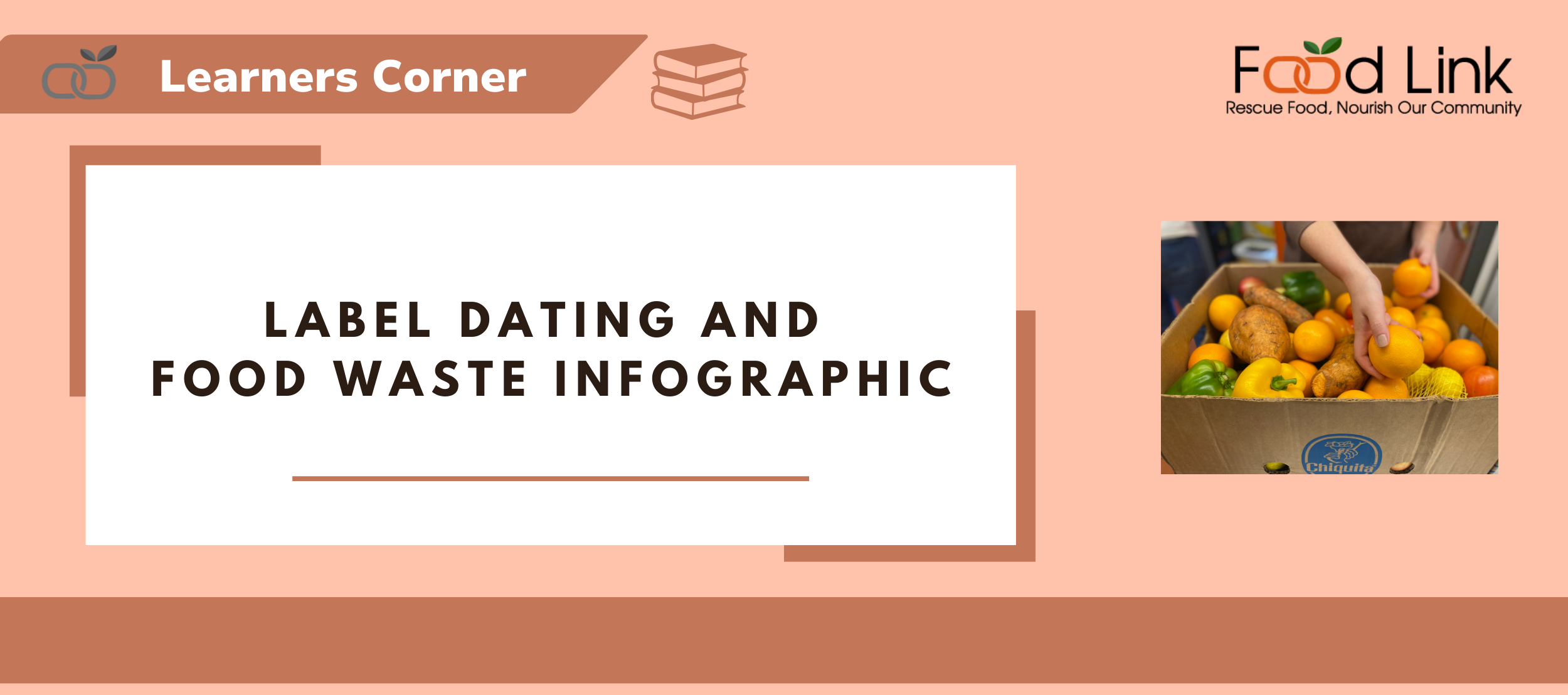Label Dating and Food Waste - Infographic Guide
According to data provided by Feeding America, "Each year, 108 billion pounds of food is wasted in the United States. That equates to more than $161 billion worth of food thrown away each year." This is an astounding statistic -- 108 billion pounds of food, 150 times as heavy as The Empire State Building, goes to landfill every year in the United States!
In Massachusetts, it is estimated that food waste makes up 25% of the Commonwealth’s waste stream. From food insecurity to the detrimental environmental impact, there are a lot of reasons to cut down on personal food waste.
But how can you get started? Food Link’s very own Operations Associate, Emma Lowenstein, created a handy guide to help you on your journey.
Decoding Types of Labels
Many common packing labels refer to the peak quality of the item. Shelf-stable items, such as canned goods and appropriately refrigerated foods, can last longer than their package date. Be sure to follow food safety guidelines for proper storage.
The exact wording may differ depending on product; dairy items tend to be marked “sell by” while many canned goods may be labeled “packed on.” Check your purchases to see the packing label for specific information.
Tips for Preserving Food
Freezing and refrigeration can slow the spoiling process of many food types. Apples, for instance, typically remain fresh for 6-8 weeks in the fridge (Health Line, 2020).
Bananas ripening faster than you can eat them? Try putting them in the fridge to slow the chemical process. Or, put your ripened bananas in the freezer to use at a later time for baking!
Further Resources
If you’re looking for more information to get started, check out some further resources. The USDA FAQ page is a great place to begin reading more about the impacts of food waste.
For more tips on storage, purchasing, and using up your foods, visit The Academy of Culinary Nutrition website. Their list of 22 ways to reduce food waste is sure to inspire some new ideas for you in the kitchen.
The Food Link team encourages you to refer back to this guide and try to reduce your personal food waste. Please note that all foods should be checked for safety before consumption.
Get more Food Link! Stay up to date on all the latest news by signing up for our newsletter, liking us on Facebook, and following on Instagram.



